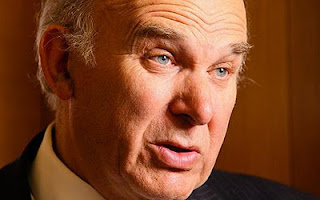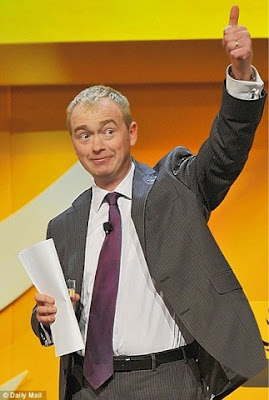 |
| Peter Welch of Southend West |
t
Medway's very own Cllr Geoff Juby, leader of our Council group was due to speak and a good contingent of our exec committee were there too including our Chairman Tony Jeacock.
In the end Geoff was not called to speak but Peter Welch of Southend West spoke passionately and eloquently against the proposals.
Conference voted AGAINST any estuary airport.
Let's just be clear so there can be no calls of inconsistency or claims to the contrary;
The Liberal Democrats are in support of creating a new HUB airport. They are AGAINST any Heathrow expansion or development in the Thames estuary.
Hope everyone has got that.
Any way, I've attached the party email from Mr Welch and included the link to the petition.
I spoke against Boris Johnson’s idea of a Thames Estuary Airport at Liberal Democrat conference last Sunday – and won a big vote. I told conference delegates that the ideas being pushed by London’s Conservative mayor were wrong on environmental, economic and aviation grounds.
I reminded delegates of the beauty of the Estuary, inviting them to come and see for themselves:
Come and visit the estuary sometime. Come to Leigh on Sea and to Old Leigh. Gaze out across the Estuary. You will probably be surprised at how beautiful it is. Locals are always tweeting pictures of the estuary, while they wait for a train in the morning. Every day it is different. You’ll be surprised at all the wildlife, so close to London, even while the centre of the estuary is a busy shipping route. There are 300 000 sea birds in the estuary, harbour seals, even seahorses. You’ll probably say to yourself: this should be protected.
And guess what? It is! If you destroy the unique wetlands of the estuary, you breach the Ramsar convention, you breach the Habitats Directive, and you destroy sites of Special Scientific Interest. You’d be breaking international agreements.
I told them that the Isle of Grain proposals were estimated to cost at least £50 billion, would involve building far out into the Estuary, and would that there would be no return on this investment for years and years.
Lastly I told the conference that the Chief Executive of NATS had described the Estuary as “the worst possible place to put an airport”. It would interfere with the flight paths at least four of our present airports – and the risk of bird strike would be unacceptably high.
Conference voted for my amendment - ruling out the Estuary option - by a massive majority.
Peter Welch
2010 Liberal Democrat candidate
Southend West
PS: We need to continue campaigning. It helps if you can forward this email to people you know who are or may be opposed. They can then sign the petition at http://campaigns.libdems.org.uk/Estuary%20Airport%20Petition
A special thanks to all the people who have printed out petition sheets and collected signatures from friends, neighbours and colleagues. We have had a great response.
It will be interesting to see if Labour's members back the move in today's motion. Even more so, the reception it will receive at the Conservative party conference next week. The Liberal Democrats have stood up for common sense on this matter - lets hope the others do to.
If there is a general consensus of all three parties Nationally, as there is locally in Medway, in Southend and in North Kent then we can block this proposal and sink Boris Island once and for all.










